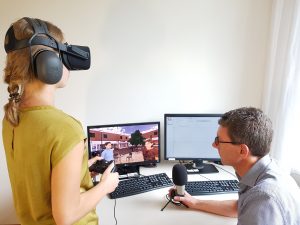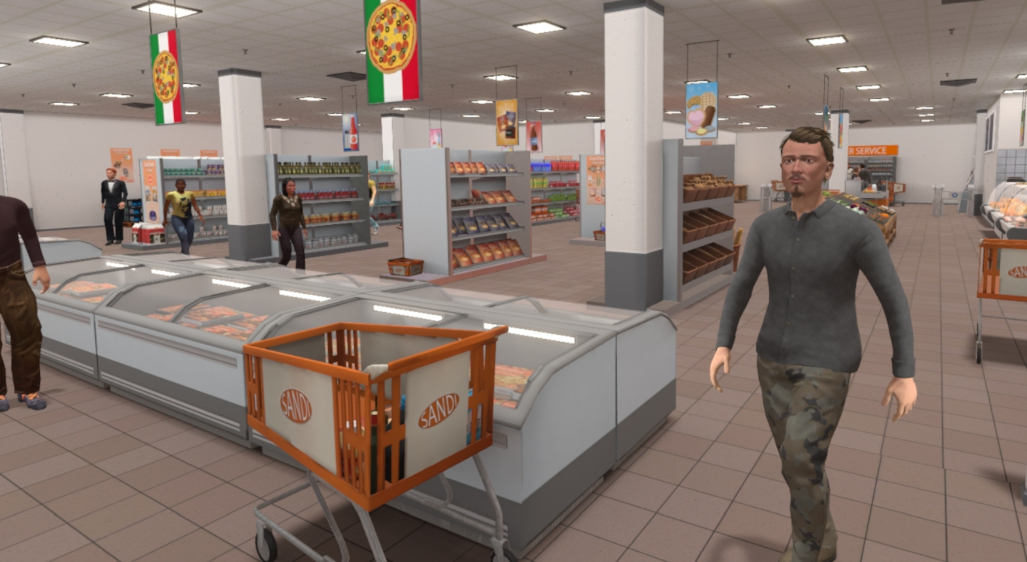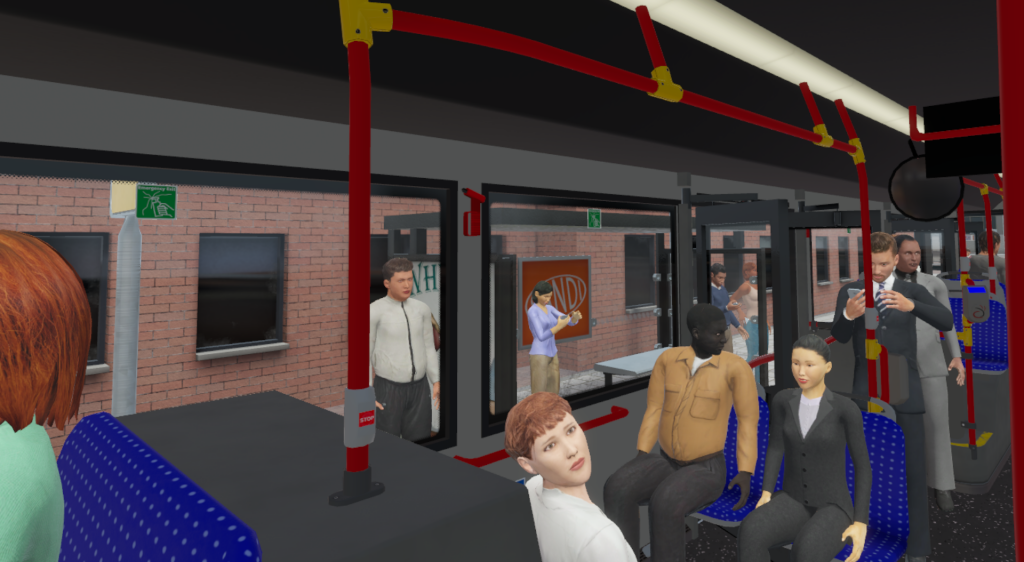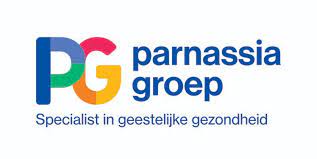VR treatment paranoid delusions
About 70% of people with psychosis suffer from paranoid delusions. They see signs everywhere that others want to harm them. They know for sure that they are in danger, when they are not. Such extreme suspicion is frightening and stressed. Suspicion makes people withdraw. Ordinary daily activities are difficult, such as shopping, chatting, walking down the street or taking the bus.

Treatments for Suspicion
The standard psychological treatment for paranoid delusions is cognitive behavioral therapy (CBT). People learn to adjust their suspicious thoughts. They should also practice in situations in their daily lives that make them suspicious and afraid. This treatment does work, but less well than we would like. In practice, people often do not dare to practice with fearful situations. Or the situations that are necessary for good practice do not occur enough. And psychologists are not there to give advice on the spot.
Treating with Virtual Reality
Use of VR can improve treatment . VR isn’t real, of course, but it evokes the same physical and psychological responses as the real world. This makes it possible to practice with situations that might still be too exciting in real life. Also, a person can choose exactly those situations that he needs. And the psychologist is present during the exercises. We* have created a VR treatment for suspicion. People can practice in a virtual supermarket, shopping street, bus or cafe.
An initial study of 116 people with psychosis showed that this treatment is indeed very helpful. After the VR treatment, people had much less suspicion and anxiety in social situations in their daily lives compared to people who had not received treatment. Some were able to go to the supermarket for the first time in many years. Or they could travel by train to their family again. They said that practicing in VR had helped them overcome the barrier.
Better than the usual treatment?
We are currently conducting a follow-up investigation. We want to know whether VR treatment helps better than regular CBT, or works faster. In this project, which is financed by the Brain Foundation, we work together with UCP, Rivierduinen, Pro Persona, Parnassia Groep, GGZ Delfland, and GGZ Noord-Holland Noord. We hope to complete it next year.


Publications about VR-CGT
Berkhof M, van der Stouwe ECD, Lestestuiver B, van’t Hag E, van Grunsven R, de Jager J, Kooijmans E, Zandee CER, Staring ABP, Pot-Kolder RMCA, Vos M & Veling W. Virtual reality cognitive-behavioural therapy versus cognitive-behavioural therapy for paranoid delusions: a study protocol for a single-blind multi-Centre randomised controlled superiority trial. BMC Psychiatry; 2021. [link]
Pot-Kolder R, Veling W, Geraets CNW, Lokkerbol J, Smit F, Jongeneel A, Ising H, van der Gaag M. Cost-effectiveness of virtual reality cognitive behavioral therapy for psychosis. Journal of Medical Internet research. 2020. [link]
Geraets CNW, Snippe E, van Beilen M, Pot-Kolder R, Wichers M, van der Gaag M, Veling W. Virtual reality based cognitive behavioral therapy for paranoia: effects on mental states and the dynamics among them. Schizophrenia Research. 2020. [link]
Pot-Kolder R*, Geraets CNW* Veling W, Beilen M van, Staring ABP, Gijsman HJ, Delespaul PAEG, Gaag M van der. Virtual-reality-based cognitive behavioural therapy versus waiting list control for paranoid ideation and social avoidance in patients with psychotic disorders: a single-blind randomised controlled trial. The Lancet Psychiatry; 2018. [link]
Pot-Kolder R, Veling W, Geraets C, Gaag M van der. Effect of virtual reality exposure therapy on social participation in people with a psychotic disorder (VRETp): study protocol for a randomized controlled trial. Trials; 2016;17: 25. [pdf]









